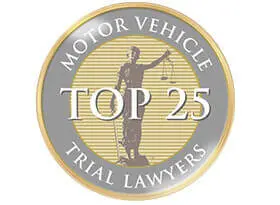There are a variety of things that go along with aging. As our bodies mature, it is normal for our abilities to change, sometimes even faltering. One such ability that should be considered with care is that of operating a motor vehicle. Although getting older is not an automatic sign that one’s driving capabilities will suffer, there are changes in our bodies that can affect driving abilities as we get older.
The most obvious change in our bodies as we age is that of reflexes becoming slower. Metro-Atlanta drivers should be able to respond to a dangerous situation quickly, which often means our reflexes must take over. As our bodies mature, these reflexes and our attention spans tend to lessen, making it more difficult to do more things at one time. Also, joints in our bodies begin to stiffen and muscles begin to weaken even before one is considered “elderly”. This can make it difficult to turn your head to check for other drivers, turn the wheel quickly, or hit the brakes rapidly in order to stay safe. People’s eyesight and hearing suffers as we age as well, requiring more light to see things. Oncoming light from the sun, headlights, or street lights can cause problems for older drivers that they did not experience at younger ages. Because of eye diseases such as cataracts and glaucoma, your peripheral vision may become finer. These health changes as well as others are all natural aspects of the aging process, and should be expected. They can, however, affect one’s driving ability. Here are a few tips to avoid causing an injury-related accident in Marietta:
- Plan your trips on streets you’re familiar with, are close to home, and don’t drive while tired or stressed.
- Do not operate a vehicle while weather conditions are unsafe.
- Wear a seatbelt and avoid distractions, such as cell phones, while driving.
- Allow large spaces between you and other vehicles, specifically two car lengths.
- Always drive with your headlights on.
- Replace your windshield wiper blades regularly.
- Consider hand controls for the gas petal and brakes if you experience problems with your legs.
The first step to keeping yourself and others safe on Georgia roads is to understand the dangers associated with driving in mind at all times. If you are unsure as to whether you should drive, consider the following questions:
- Do others drivers honk at you often?
- Do you get lost often on familiar roads?
- Do other vehicles or pedestrians seem to appear out of nowhere?
- Have you had accidents, even fender benders, often?
- Do family members and doctors seem worried about your driving abilities?
If you answered yes to more than one of these questions, you should consider finding an alternative means of transportation besides driving yourself. Just because you no longer drive, there are still things you can do to stay active. There are affordable bus and taxi services for elderly people, as well as religious and volunteer groups that take seniors where they want to go. The most important thing is to keep yourself and others on the road safe, regardless of how you feel about no longer driving. If you are involved in an accident and someone else is injured due to negligence on your part, you may be held liable for medical expenses, lost wages, pain and suffering, and more. If you or someone you know has questions about elderly driving or an auto accident in Georgia, contact Jones & Swanson today for more information. We have experience representing auto accident victims as a result of a variety of types of dangerous drivers, and we want to help.










